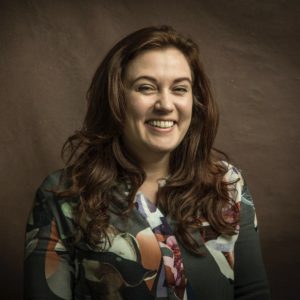
Dr. Beth Singler is the Junior Research Fellow in Artificial Intelligence at Homerton College, University of Cambridge. Prior to this she was the post-doctoral Research Associate on the “Human Identity in an age of Nearly-Human Machines” project at the Faraday Institute for Science and Religion. She has been an associate fellow at the Leverhulme Centre for the Future of Intelligence since 2016. In 2021 she was elected a Fellow of the International Society for Science and Religion.
Beth explores the social, ethical, philosophical and religious implications of advances in Artificial Intelligence and robotics. As a part of her public engagement work she has produced a series of short documentaries. The first, Pain in the Machine, won the 2017 AHRC Best Research Film of the Year Award. Beth has appeared on Radio4’s Today, Sunday and Start the Week programmes discussing AI, robots, and pain. In 2017 she spoke at the Hay Festival as one of the ‘Hay 30’, the 30 best speakers to watch. She was also one of the Evening Standard’s Progress 1000 list of influential people in both 2017 and 2018.
She has also spoken on AI and human identity at the London Science Museum, Cheltenham Science Festival, the Barbican, the Being Human Festival, and the Cambridge Festival of Ideas. She has appeared at the Edinburgh Science Festival, Ars Electronica, IP Expo, and New Scientist Live. In 2019 she spoke at the Norwich Science Festival, the London Science Museum, and was interviewed by the New Scientist, Forbes, and the BBC, among others.
Beth is an experienced social and digital anthropologist, and her first academic book is a ground-breaking in-depth ethnography of the ‘Indigo Children’—a New Age re-conce@ption of both children and adults which uses the language of science, evolution, and spirituality. In 2021, she won the Digital Religion Research Award from the Network for New Media, Religion, and Digital Culture Studies for her work on the AI Creation Meme.
@bvlsingler | Academia.edu
The first Discourse! of 2022 is hosted by Michael Munnik (Cardiff), who is joined by guests Beth Singler (Cambridge) and Richard Newton (Alabama) to discuss how the media is talking about "religion" this month.
To honor May the Fourth, International Star Wars Day, please enjoy this compilation of classic Religious Studies Project interviews about Star Wars!
Chris Cotter and Beth Singler discuss the intersections between religion and Artificial Intelligence from slavery and pain to machines taking over religious functions and practices.
This roundtable, in association with the Faraday Institute for Science and Religion, considers the impact of recent technological advances in Artificial Intelligence (AI) and robotics on religion, religious conceptions of the world, and the human. It draws attention to how such advances push religion beyond how it has been commonly defined and considered.
Fourteen contestants. One tetchy quizmaster. Three microphones. Numerous cases of wine. One glamorous assistant. Many bruised egos. A boisterous studio audience. A splash of irreverence. Dozens of questions. Four years of podcasts! A rapidly diminishing reservoir of academic credibility. And far, far too many in-jokes...
Here are some traditions that make this time of the year special. End-of-year listicles, the "War on Christmas" debate, animations of elves dancing with your family's heads pasted on... and of course, the RSP "Christmas" Special!
Publishers just keep asking us to review their books. And who are we to refuse? Free books! So we've now decided to make book reviews a regular feature of the RSP. The format is exactly the same as it was previously. We handed out a few books to some of our friends and sat them down (or at least tried in one case)...
An 'emergency broadcast' from the Religious Studies Project... featuring George Chryssides, Bettina Schmidt, Teemu Taira, Beth Singler, Christopher Cotter, and David Robertson. What did the 2011 census data actually say, and how did the press report it? Why does it matter, and how can we use the data more constructively?
This work is licensed under a Creative Commons Attribution- NonCommercial- NoDerivs 3.0 Unported License.
The views expressed in podcasts, features and responses are the views of the individual contributors, and do not necessarily reflect the views of The Religious Studies Project or our sponsors. The Religious Studies Project is produced by the Religious Studies Project Association (SCIO), a Scottish Charitable Incorporated Organisation (charity number SC047750).